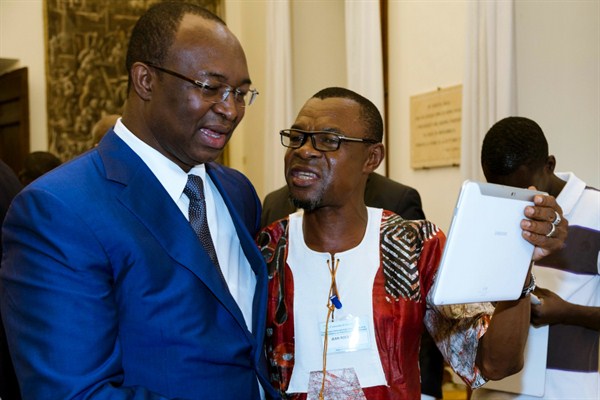On June 19, Central African Republic’s government and more than a dozen armed groups signed a peace deal mediated in Rome by the Catholic Community of Sant’Egidio, briefly raising hopes of a break, or at least a reduction, in violence. Those hopes were seemingly dashed the following day, when heavy fighting resumed in the town of Bria. The town’s mayor said at least 100 people were killed. In an email interview, Evan Cinq-Mars, United Nations adviser with the Center for Civilians in Conflict, explains how the dynamic of the conflict in Central African Republic has evolved and why the situation is deteriorating.
WPR: What are the factors driving the spike in violence in the first half of 2017, and how does the current conflict dynamic differ from past periods of heavy fighting?
Evan Cinq-Mars: The escalating violence in Central African Republic should be seen in the context of a deteriorating situation since mid-2016, which is linked to the war that’s gripped the country since December 2012. Since the election of President Faustin Archange Touadera in early 2016, movement has been slow on a range of critical issues, including disarmament, demobilization and reintegration; security sector reform; and the re-establishment of state administration. The stalled progress is contributing to an unsustainable status quo as armed groups agitate—and fight—to strengthen their positions.

